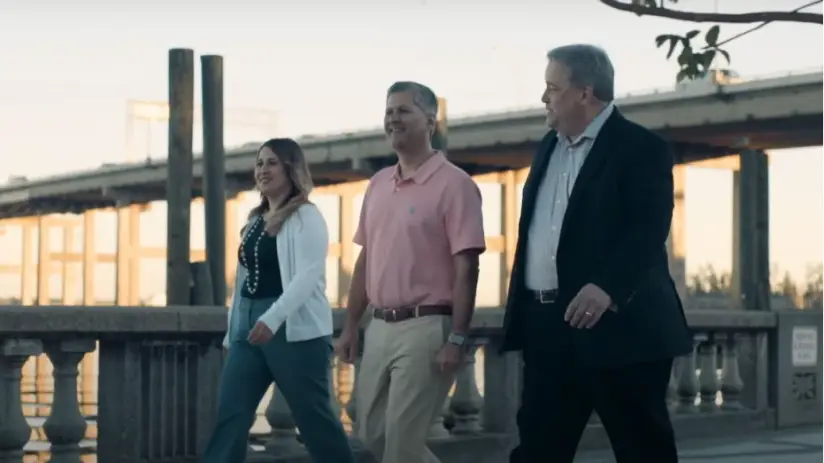If you have been injured in an accident that was caused by someone else, you may be able to receive compensation for your medical bills and other accident-related costs. This is called Personal Injury Law.
Offering 40+ Years of Shared Experience: (239) 237-5615
Has the negligent or reckless behavior of another person left you injured? Since 1995, the experienced personal injury lawyers at Viles & Beckman, LLC have helped clients recover the financial assistance they need in the aftermath of an unfair or unexpected injury. Your story is worth our time and attention. We know that no two injuries are quite alike and that the same accident might involve numerous, complex areas of law. That’s why the legal team you choose should be a deeply experienced one.
Why Clients Trust Viles & Beckman, LLC:
- We don’t get paid unless we settle your case or win at trial
- Attorney Marcus W. Viles is a Board-Certified Civil Trial Attorney
- Attorney Michael Beckman has achieved some of the largest monetary verdicts in FL history
- We offer more than 40 years of experience to our clients
How Much will a Personal Injury Attorney Cost?
Contrary to popular belief, a good personal injury attorney will not cost you an arm and a leg. Many people confuse personal injury attorneys with the legal professionals that they are shown in the media which are more often than not, criminal trial lawyers. There is a significant difference between personal injury attorneys and attorneys that deal with criminal law not just regarding the types of cases that they handle but also how they receive compensation.
Personal Injury attorneys will typically work on what is called a “contingency fee” basis. This means that your personal injury attorney’s fee that they will be working for is directly tied to the outcome of your case. A personal injury attorney takes their fee out of the final settlement that they get you and if they fail to secure a settlement for their client then that means that they get nothing at all and the client has to pay them nothing. Personal injury attorneys will usually take out a contingency fee of around 33.3% from a settlement although every case is different and this percentage can vary. So it is ultimately within your best interest to at least speak to a personal injury attorney like those found at Viles & Beckman.
The value of your case depends on a number of factors that are particular to your specific injury situation. On average, personal injury settlement amounts range from $3,000 to $75,000.
The Florida statute of limitations for automobile, truck, and motorcycle accident cases is four years. However, it is in your best interest to make your claim as soon as possible.
If all parties agree to a settlement, Florida law 627.4265 requires insurance companies to pay the claim within 20 days.
Florida places a limit on emotional distress damages. Generally, you can receive emotional distress damages only when they have arisen as a result of physical harm that you have suffered.
The amount of pain and suffering is usually computed by the “multiplier method.”
For example: A plaintiff incurs $3,000 worth of medical bills and their level of pain is about three; the pain and suffering figure is $9,000 ($3,000 x 3 = $9,000).
- Take photos of your injuries.
- Visit a doctor.
- Follow all medical care plans.
- Attend all follow-up medical appointments.
- Write a narrative of the accident while it is still fresh in your memory.
- Make a list of witnesses and contact information.
- Follow any instructions from your attorney.
Don’t Attempt to Handle Your Personal Injury Case on Your Own
There is no law or rule that says that you cannot attempt to handle a personal injury case on your own. With that said, there is not a single legal professional that will advise you to take this route when seeking compensation. In matters regarding personal injury, experience can often prove to be one of the most invaluable resources when it comes to getting the best settlement possible.
There are a disturbing amount of people that attempt to handle their own personal injury claims and lawsuits solo and they very often end up making mistakes that significantly diminish the value of their case. Sometimes these mistakes can prove disastrous enough that they lead to the insurance company outright denying their claim putting these people in dire straits. The insurance company wants nothing more than to deal with someone that has no experience dealing with personal injury law so that they can try every trick in the book to try and get you to admit fault, accept lowball offers, or give up entirely. You owe it to yourself to give your case the best chance possible at securing the compensation you are entitled to as a victim of negligence.
Consider Viles & Beckman as Your Personal Injury Representation
Unlike many other law firms, we do not dismiss case inquiries just because they involve relatively modest damages. Likewise, we are not afraid to take on extremely complicated or unusual cases. Our combined experience, with more than 40 years of practice in Florida personal injury law, has equipped us to competently and strategically handle virtually any kind of personal injury claim. Every victim deserves justice. Every person deserves to be heard. Don’t give up on your claim until you’ve at least scheduled a free case review with our office first.








Over 40 Years of Practice in Florida Personal injury Law
Many different scenarios might lead to an injury caused by another party’s careless behavior. Victims might suffer harm from a defective product, a slip, and fall at the grocery store, or from a serious traffic accident. Severe injuries can be life-altering events that devastate victims and their families. In addition to the physical pain of injury and recover, the aftermath of an injury often includes emotional and financial stress from missing work while medical bills continue to accumulate.
The personal injury attorneys at Viles & Beckman understand the emotional and financial consequences of sustaining a serious injury and we are here to help you through this challenging time.
If you, your child, or another loved one has suffered an injury as a result of another party’s negligence, contact us at (239) 677-4283 for a free consultation to discuss the merits of your case and determine your eligibility to recover damages.

Entrust Viles & Beckman, LLC to fight for your recovery with every breath in our body.
to schedule a free case evaluation.
About the Author of this Page: The above information was written or reviewed by one of the attorneys at Viles & Beckman LLC who have a combined experience of nearly 60 years: Marcus Viles, Michael Beckman and associates. The information provided in this article comes from years of experience trying legal cases outside and inside courtrooms throughout Florida along with extensive research.















